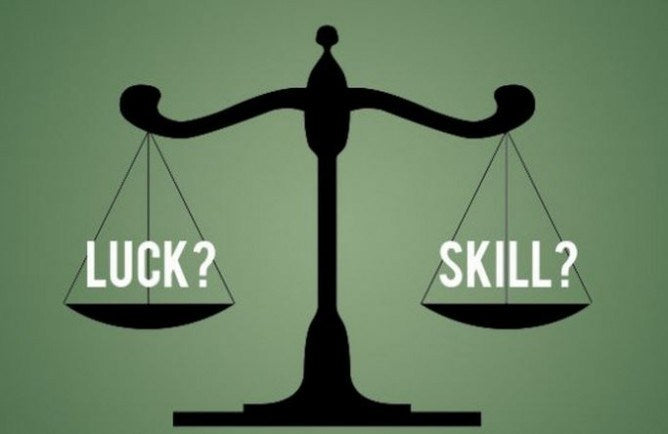
“May the better player win” is a phrase  often stated before high-stakes matches, but let’s take a closer look at that idea. In a competitive game, should the best player always win?
often stated before high-stakes matches, but let’s take a closer look at that idea. In a competitive game, should the best player always win?
While the immediate answer seems to be a resounding “yes,” there are quite a few reasons to say otherwise. There’s a good reason that almost every board game uses dice or cards, and that’s because luck and randomization makes variance. To see why variance is important, imagine a world where every game had no random elements, no hidden information, etc. In other words, imagine that every game was chess.
 Now, chess is a great game, but I wouldn’t want it to be the only game I could play. In a game with no luck, a match is almost predetermined based on who is against who, since there’s nothing stopping the better player from simply winning.
Now, chess is a great game, but I wouldn’t want it to be the only game I could play. In a game with no luck, a match is almost predetermined based on who is against who, since there’s nothing stopping the better player from simply winning.
Luck adds an element to games that allows for a worse player to have a chance at success against better opponents. Now, that chance doesn’t have to be large, it just needs to exist. Without it, new players would be discouraged from joining the game because they don’t stand a chance.
However, even if luck can turn the tide of some matches, truly good players can plan and work around the luck. Although one bad hand might mess up a round, when someone plays through tens or hundreds of hands, the bad luck evens out with the good luck. That’s the reason why, despite being a heavily luck-based game, the same group of poker players win most major tournaments.  Players with higher skill will prepare their strategies around the luck and make the best out of when things go wrong. I personally play competitive Tetris, and while sometimes I get bad block setups, it doesn’t matter when going through 20 pieces a minute.
Players with higher skill will prepare their strategies around the luck and make the best out of when things go wrong. I personally play competitive Tetris, and while sometimes I get bad block setups, it doesn’t matter when going through 20 pieces a minute.
Overall, luck can feel terrible or amazing depending on what side of it you’re on at any given moment. However, there is no doubting that, when done right, luck does great good for games as a whole.
Leave a comment (all fields required)
Comments will be approved before showing up.

